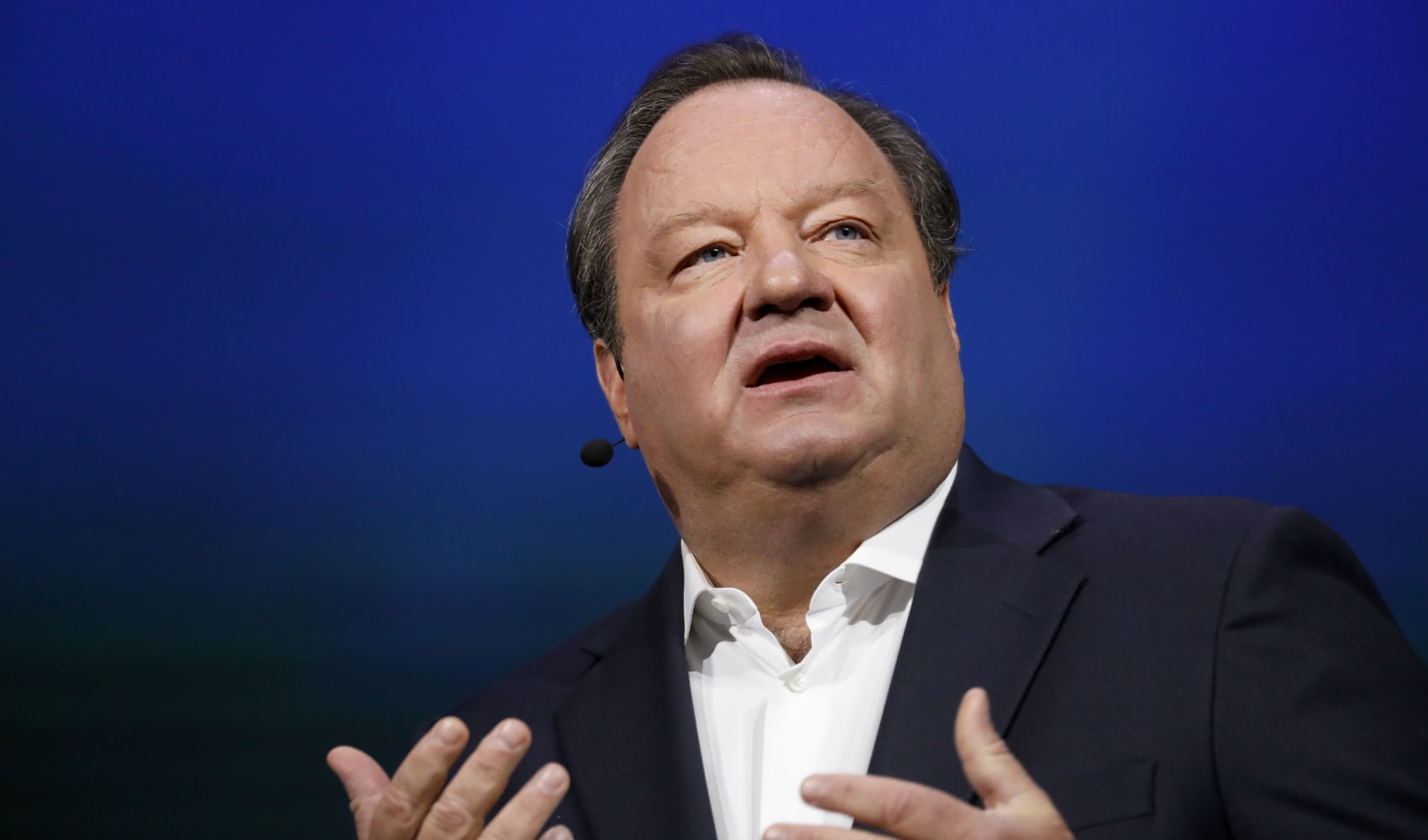
- Microsoft's cloud is growing significantly faster than Amazon Web Services of late, thanks in part to its cozy OpenAI relationship.
- Analysts estimate Azure, which was about half as big as AWS five years ago, is now three-quarters its size.
- Revenue at Azure increased 30% in the quarter, compared with 13% year-over-year growth at AWS.
Amazon Web Services is still the cloud leader. But Microsoft is quickly closing the gap.
While Microsoft doesn't disclose revenue figures for its Azure cloud infrastructure, analyst figures suggest that five years ago it was half as big as AWS. Now, it's about three-quarters the size of its top rival, analysts estimate.
Part of Microsoft's recent momentum is because of artificial intelligence.
Get Tri-state area news and weather forecasts to your inbox. Sign up for NBC New York newsletters.
Amy Hood, the company's finance chief, said on Microsoft's Jan. 30 earnings call that 6 points of revenue growth in the Azure and cloud services division came from AI in the latest period, up from 3 points the prior quarter.
In total, revenue at Azure increased 30% in the quarter, compared with 13% year-over-year growth at AWS.
Microsoft has been adding graphics processing units (GPUs) to its data centers so that clients can run AI models in Azure. That includes GPT-4, a large language model that enables text conversations with OpenAI's ChatGPT chatbot. Many businesses have been adding similar generative AI capabilities to their products.
Money Report
"We now have 53,000 Azure AI customers," CEO Satya Nadella told analysts on the company's earnings call.
Jamin Ball, partner at investment firm Altimeter Capital, said it seems that some companies are considering Azure specifically because of the excitement surrounding AI and Microsoft's perceived lead in the market due to its close relationship with OpenAI.
AWS took months to come out with a model that could go up against GPT-4. The company is now offering a number of models in addition to its own, including one from Anthropic, which Amazon backed. On the company's fourth-quarter earnings call, Amazon CEO Andy Jassy said that AWS offers "the most expansive collection of compute instances with Nvidia chips," and that customers including Airbnb and Snap are using its homegrown AI processors.
An AWS spokesperson referred CNBC to Jassy's comments from the earnings call, including that the company added more incremental revenue in the quarter than "any other cloud provider as far as we can tell."
Jassy also said that generative AI is expected to "ultimately drive tens of billions of dollars of revenue for Amazon over the next several years."
As it stands now, Azure is growing much faster.
And as cloud infrastructure has become a bigger part of Microsoft, making up around 29% of the company's total revenue, it's also become a meaningful contributor of profit.
Microsoft, which recently surpassedApple to become the world's most valuable public company, generated almost $83 billion in net income in 2023, up from $67 billion the previous year. The Intelligent Cloud segment containing Azure generated 46% of Microsoft's total operating income, up from about 27% in 2016.
In addition to providing basic computing and storage, Microsoft offers a variety of services for developers, including high-margin databases and monitoring tools.
Gross margin in Microsoft's cloud group widened from 42% in 2016 to 72% in the most recent quarter. The division includes commercial Office subscriptions, the commercial part of LinkedIn and Dynamics 365 enterprise software as well as Azure. Hood has said efficiency gains can come from improvements in power, cooling, data center design, chips and software.
Yun Kim, an analyst at Loop Capital, said in a note that Azure's revenue growth could pick up.
"We expect its Azure business to accelerate starting next FY (or C2H) as tailwinds from new workloads from both new cloud deployments and GenAI initiatives ramp meaningfully," he wrote.
Don't miss these stories from CNBC PRO:
- Three stocks that could replace Tesla in the 'Magnificent 7'
- Morgan Stanley hikes Nvidia price target ahead of earnings: 'AI demand continues to surge'
- Vanguard launches two new ETFs to hit this sweet spot of tax-free fixed income
- Berkshire Hathaway topped $600,000 a share last week, aiming at $1 trillion market value
WATCH: Amazon has the most 'juice' to the upside among Big Tech stocks, says Evercore ISI's Mark Mahaney






